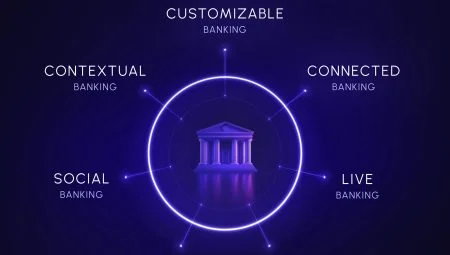What Is Budgeting and Why Does It Matter?
Budgeting is the process of planning your income and expenses to gain control over your money. It’s not about deprivation—it’s about direction.
A good budget helps you:
-
Understand where your money goes
-
Allocate resources to your priorities
-
Avoid debt and financial chaos
-
Make conscious spending decisions
It matters because money touches every part of your life—from daily coffee to long-term retirement goals.
Understanding Financial Health
Financial health isn’t just about how much you earn. It includes:
-
Cash Flow: Are you living within your means?
-
Savings Rate: Can you handle an emergency?
-
Debt Load: Are you borrowing responsibly?
-
Financial Goals: Do you have a roadmap?
Budgeting ties all these together, giving you a clear picture of your financial reality.
21 Ways Budgeting Strengthens Your Financial Life
-
Tracks Spending – See where every dollar goes.
-
Prevents Overspending and Debt – Stay within limits and avoid credit pitfalls.
-
Builds Emergency Savings – Prepares you for car repairs, layoffs, or health bills.
-
Helps You Prioritize – Allocate funds to what truly matters.
-
Reduces Financial Stress – Knowing your numbers brings peace of mind.
-
Improves Saving Habits – Makes saving a routine, not a leftover.
-
Encourages Smart Spending – You spend intentionally, not impulsively.
-
Supports Investing – Frees up money to grow wealth over time.
-
Aligns Spending with Values – Money reflects your goals and lifestyle.
-
Improves Communication – Couples avoid money fights with shared visibility.
-
Boosts Financial Confidence – Control breeds empowerment.
-
Prepares for Irregular Expenses – Annual fees or seasonal costs won’t shock you.
-
Tracks Progress Toward Goals – Visual feedback keeps you motivated.
-
Allows Lifestyle Tweaks – Adjust spending when income or goals change.
-
Builds Credit Health – On-time payments and lower balances follow good budgeting.
-
Increases Accountability – You become answerable to your plan.
-
Helps Resist Impulse Buys – Pausing before spending becomes natural.
-
Enables Retirement Planning – Budgeting now secures your future.
-
Improves Overall Well-Being – Money worries impact health and relationships.
-
Increases Financial Literacy – Awareness leads to better decisions.
-
Empowers Life Decisions – You can change jobs, relocate, or invest confidently.
Different Types of Budgets
No two financial lives are the same. That’s why there are several budgeting models that can fit your goals and personality:
1. Zero-Based Budget
Every dollar is assigned a role—whether to spending, saving, or debt payoff.
Best for: People who want full control and clarity.2. Envelope System
Cash-based system where money is divided into physical envelopes for each spending category.
Best for: Those who overspend with cards or struggle with discipline.3. 50/30/20 Rule
-
50% for needs
-
30% for wants
-
20% for savings/debt repayment
Best for: Beginners and those who prefer simplicity.
Each method helps build awareness, discipline, and goal-alignment—pick one that fits your lifestyle.
Common Budgeting Mistakes to Avoid
Even with the best intentions, many budgets fail due to avoidable mistakes:
-
Making It Too Complicated: Simplicity leads to consistency.
-
Forgetting Irregular Expenses: Annual insurance or holidays should be budgeted too.
-
Not Reviewing Regularly: A budget is a living tool—adjust monthly or as needed.
-
Ignoring Fun Spending: Restrictive budgets often lead to burnout. Allocate “guilt-free” money.
-
Failing to Involve Partners: For couples, transparency prevents conflicts.
Budgeting is not about perfection—it’s about progress and self-awareness.
Budgeting Tools and Apps That Work
Modern tools make budgeting accessible, visual, and even enjoyable:
Tool Best Features YNAB Goal tracking, zero-based method, syncs with banks Mint Auto-categorization, alerts, credit monitoring EveryDollar Clean interface, quick setup Google Sheets Customization for DIY users Choose the tool that motivates you to stay consistent and informed.
Budgeting for Different Life Stages
Life changes—and so should your budget. Tailor it based on where you are:
Students
-
Focus on tracking spending, minimizing debt, and small savings.
Families
-
Include child expenses, joint goals, and family emergency funds.
Young Professionals
-
Emphasize debt repayment, investing, and savings automation.
Retirees
-
Monitor fixed income, healthcare costs, and drawdown plans.
Each stage presents new challenges, but budgeting ensures financial stability and adaptability.
FAQs About Budgeting and Financial Health
Q1: Do I need to budget if I make a high income?
Yes. High earners often spend more unconsciously. Budgeting protects wealth.Q2: What if my income is irregular?
Build a baseline budget using your lowest expected income, and treat any extra as a bonus.Q3: Can I budget without cutting out fun?
Absolutely. Budgeting includes fun money—it just ensures fun is intentional, not impulsive.Q4: How long does it take to see results?
Some effects (like clarity and reduced stress) are immediate. Long-term savings or debt changes can take 3–6 months.Q5: What if I fail one month?
Start fresh. Budgeting is a habit, not a perfection contest.
Conclusion: Financial Peace Starts with a Plan
Budgeting isn’t about restrictions—it’s about freedom with structure. When you tell your money where to go, it stops disappearing.
It gives you clarity in confusion, hope in hardship, and momentum toward your dreams. Whether you’re climbing out of debt or building wealth, a well-crafted budget is the foundation of lasting financial health.
Start today. Start small. Start smart.
Because financial wellness begins with one decision: to take control.
🔗 External Resource: Consumer.gov – Create a Budget
-



